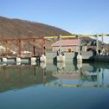
Insurgents Carry Out a Series of Attacks in Kabardino-Balkaria
Publication: Eurasia Daily Monitor Volume: 6 Issue: 214

The Republic of Kabardino-Balkaria this week has been the target of a series of attacks apparently carried out by insurgents. On the evening of November 17, an electric power substation in the Adyl-Su Gorge in Kabardino-Balkaria’s Elbrusk district was blown up. Later that same evening, an explosion in the Azau Glade cut the line between the fourth and fifth abutments of the Azau-Krugozor cable line. No one was hurt in the blasts. Law enforcement sources were quoted as saying that members of “illegal armed formations” –the standard official Russian terminology for insurgents in the North Caucasus– might have been behind the blasts. Also on November 17, unidentified attackers fired automatic weapons and grenade launchers at an Elbrus district police post. The post was manned by five policemen at the time of the incident, but none were hurt in the attack (www.kavkaz-uzel.ru, November 18).
There were another series of incidents yesterday (November 18). An unidentified law enforcement source in Kabardino-Balkaria told ITAR-TASS that police in the republic’s Cherek district had averted a terrorist act aimed at blowing up the Aushiger hydropower plant. The source added that an arms cache containing four kilograms of plastic explosives, seven grenades, four detonators and a bomb had been found in a forest 200 meters from the hydropower plant. According to ITAR-TASS, the Aushiger hydropower plant, one of two hydropower plants on the Nizhny Cherek River, provides Kabardino-Balkaria with about 20 percent of its electric power (ITAR-TASS, November 18).
Kavkazsky Uzel today (November 19) reported that two electric power line pylons were blown up on the outskirts of the village of Malka in Kabardino-Balkaria’s Zolsky district, one of which was destroyed completely. Traces of a bomb containing aluminum and plastic explosives were found at the scene. A Malka resident, Anyusa Khazhnagoeva, told the website: “We were all awakened by the explosion. The glass in the windows rattled and the lights went out immediately.” Kavkazsky Uzel also cited specialists as saying that had the Aushiger hydropower plant been successfully blown up, the villages of Aushiger and Urvan would likely have been submerged in hundreds of thousands of cubic meters of water and that the flood would have threatened other villages located on the banks of the Cherek River, including Nizhny Cherek and Psygansu (www.kavkaz-uzel.ru, November 19).
The government newspaper Rossiyskaya Gazeta on November 18 quoted inhabitants of the village of Terskol at the foot of Mount Elbrus as saying that the previous evening, the lights had gone out and many had heard shooting and explosions. The paper added: “The population of the resort zone, whose attendance by tourists and mountain climbers is growing year by year, cannot recall acts of sabotage or daring armed sorties of this kind. The goal of the bandits, according to local residents, is to intimate people and undermine the economy of the republic, given that guests from other parts of Russia and foreigners will not want to a visit a turbulent region” (www.rg.ru, November 18).
While there has been no official statement on the attacks in Kabardino-Balkaria, Kavkazsky Uzel quoted a local human rights activist, Valery Khatazhukov, as saying they were probably carried out by “those who carried out terrorist attacks earlier.” He noted that a gas pipeline was blown up in Kabardino-Balkaria’s Elbrus district in September 2007. The website quoted an anonymous source as saying that the latest bombings were carried out by “destructive forces who by means of destabilizing the situation” in Kabardino-Balkaria are seeking to remove the republic’s president, Arsen Kanokov.
Kavakzsky Uzel also noted that prior to this week’s attacks there had been seven large bomb blasts in Kabardino-Balkaria. Among these were the attacks in the republic’s Chegemsky district in October 2008, which large improvised explosive devices were used to blow up two electric power lines, forcing local authorities to switch to emergency electric power supplies. Supplies of electricity cut off by this week’s bombings are expected to be restored by this evening (www.kavkaz-uzel.ru, November 19).
The chief of staff of the Combined Group of Forces in the North Caucasus, Colonel Oleg Panarin, said on November 8 that the North Caucasus remains a troubled region and that the situation there is getting worse. “The main destabilizing factor, as before, is the presence and activities in Chechnya, and also in the regions of the Russian Federation neighboring it, of bandit formations seeking to further step up their armed struggles against the federal forces and local government bodies,” he said. Panarin added that “the bandit underground” is gradually increasing its numbers and this being achieved through “active agitation-propaganda work” on the part of the “leaders of the bandit groups” and their “representatives among the population” (www.yuga.ru, November 8).
In his annual state of the nation address last week, Russian President Dmitry Medvedev said that the level of corruption and violence in the North Caucasus republics is “unprecedented.” He said that a cabinet post dedicated to tackling problems in the North Caucasus would soon be created (RIA Novosti, November 12).




